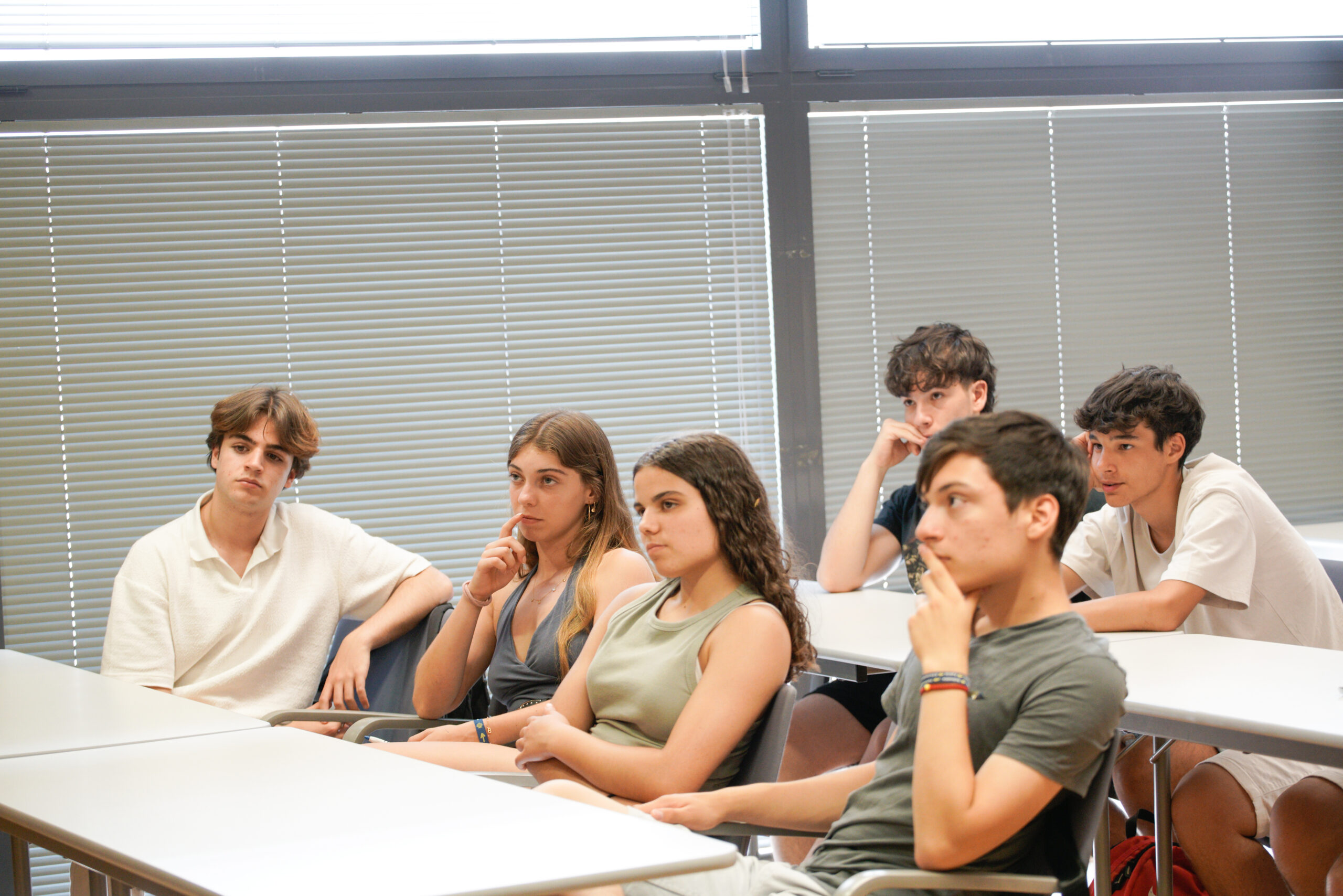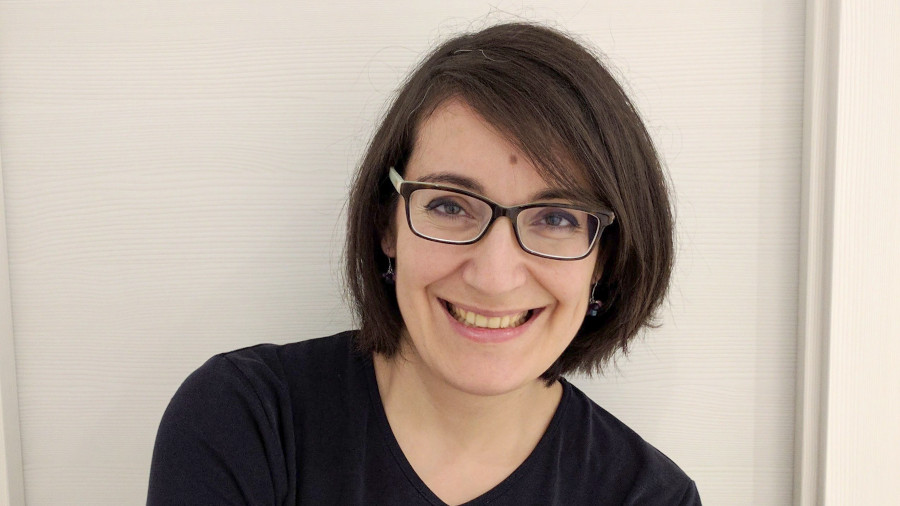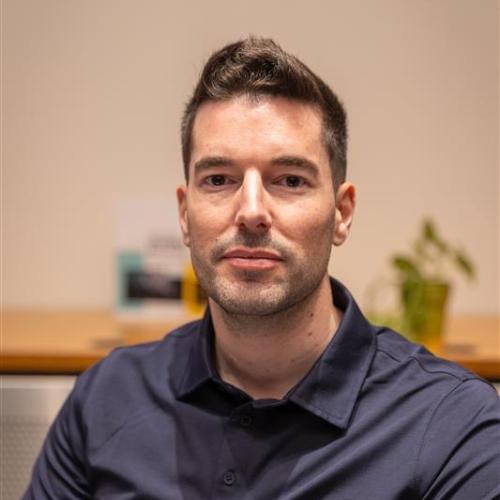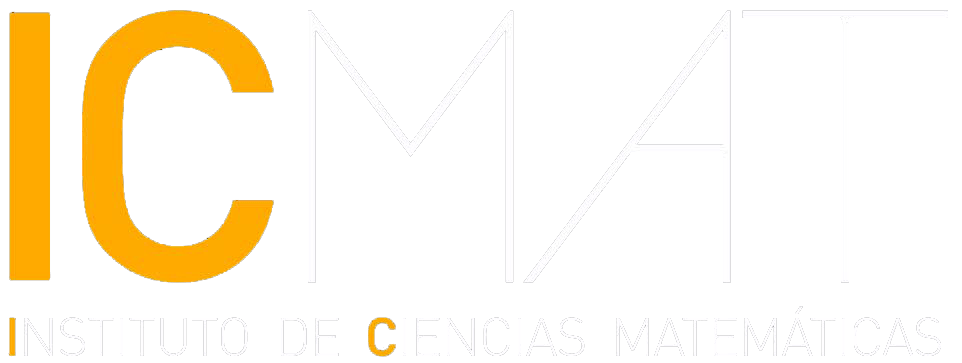The event ‘STEAM Education under debate: knowledge and skills’ brings together international education specialists and government representatives on the occasion of International Education Day (24 January). It will take place at the CSIC central building in Madrid on 20 January at 17:30 and will be broadcast live on the CSIC Divulga YouTube channel.

In Spain, the competency-based framework predominates in STEAM education. Image: Iñigo de Amescua/ ICMAT.
As part of International Education Day, the Spanish National Research Council (CSIC) is organising a conference on Monday 20 January at 17:30 to discuss different approaches to pre-university teaching of STEAM (Science, Technology, Engineering, Arts and Mathematics) subjects: one that focuses on competences – which is promoted in many countries, including Spain – or one that focuses on knowledge – which is making a comeback in other countries such as Norway, Sweden, Australia and New Zealand.
‘STEAM Education under debate: knowledge and skills’, an event that will take place in the Assembly Hall of the CSIC’s central building in Madrid and will be broadcast live on the CSIC Divulga YouTube channel, will be attended by international specialists on this topic: Digna Couso, researcher at the Autonomous University of Barcelona, and Claudio Vanhees, researcher at the Thomas More University of Applied Sciences (Belgium) and author of the recent publication Developing Curriculum for Deep Thinking. The Knowledge Revival (Springer-Nature, 2025).
After their initial presentations, there will be a debate on different aspects of both frameworks – implications in the Spanish system, specific considerations in the teaching of STEAM or historical evolution – in a round table open to the participation of the audience. Also taking part in the debate will be Salomé Cejudo, member of the CSIC at School team and of the CSIC Science Education working group; Carmen Tovar, director of the National Institute for Educational Assessment of the Spanish Ministry of Education, Vocational Training and Sport; and David Cervera, director general of Bilingualism and Quality of Education of the Community of Madrid. Javier Aramayona, director of the Institute of Mathematical Sciences (ICMAT), will moderate the meeting. This is an event with an academic content adapted to different audiences, with the focus on primary and secondary education teachers.
Two frameworks, a common basis
‘The competency-based approach assumes that it is not enough to say, repeat or uncritically state knowledge. It is not satisfied with explaining knowledge well and asking students to explain it well in turn, but expects knowledge to be used, i.e. applied in real or realistic contexts, to act in the world’, defines Digna Couso.
However, according to some experts, this framework ‘emphasises the supposedly generic nature of complex cognitive skills, such as reading comprehension or critical thinking, while knowledge takes a secondary or implicit role,’ says Claudio Vanhees. ‘But if you know how to solve complex mathematical problems, that skill cannot simply be transferred to, for example, geography, but requires specific knowledge. To achieve this, a solid knowledge base in the area of study is essential. A knowledge-rich curriculum is the strongest way to acquire knowledge and develop complex cognitive skills,’ he adds.
Theoretically, these two positions complement each other. ‘You cannot acquire or demonstrate competence without knowledge, and knowing without being able to use knowledge is uninteresting and I would even say that it is not really knowing,’ says Couso. However, socially, they are linked to different practices. ‘Mistakenly, the competency framework is associated with certain methodological aspects – context, motivation, teamwork, transversal competences… and also with educational mantras such as ‘the well-being of the student should be at the centre’, when learning should be the main thing, or even more dangerous approaches such as ‘content does not matter’, or ‘teachers are mere companions of student learning’, instead of professionalised activators’, reflects Couso.
Recently, in the light of the results obtained in recent years, countries such as Norway, Sweden, Australia, New Zealand, Scotland, Northern Ireland and Flanders (Belgium) have embarked on curriculum change, ‘explicitly recognising the importance of knowledge in the curriculum to fully commit to higher quality education and greater access to quality education for all students,’ says Vanhees.
Couso proposes to start from a common basis: ‘We all want our students to learn, to have solid knowledge, and we know that learning always costs. We are responsible for generating the most effective learning situations, not so that they are happy and content (although that helps and the opposite hinders), nor so that learning costs nothing, but so that the effort invested in it makes sense, for the more students the better’.
STEAM education under debate: knowledge and skills
The initiative, organised by the CSIC and promoted by the Science Education working group of the CSIC’s Deputy Vice-Presidency for Scientific Culture and Citizen Science (VACC-CSIC) and the Institute of Mathematical Sciences (ICMAT, CSIC-UAM-UC3M-UCM), aims to encourage reflection on science education today. In collaboration with the Community of Madrid, the Ministry of Education, Vocational Training and Sport and the European Research Council.
About the speakers
 Digna Couso is Associate Professor in the Faculty of Education Sciences at the Autonomous University of Barcelona (UAB), Director of the Centre for Research in Science and Mathematics Education and Head of the Science Education Unit of the Department of Mathematics and Science Didactics at the UAB since 2015. With a degree in Physics and a PhD in science didactics, she is currently a teacher educator in STEAM, both in primary and secondary education, and researches on curriculum development in STEAM communities of practice, within a competency-based approach, on the design of teaching and learning sequences and materials, and on enquiry learning in science focused on modelling.
Digna Couso is Associate Professor in the Faculty of Education Sciences at the Autonomous University of Barcelona (UAB), Director of the Centre for Research in Science and Mathematics Education and Head of the Science Education Unit of the Department of Mathematics and Science Didactics at the UAB since 2015. With a degree in Physics and a PhD in science didactics, she is currently a teacher educator in STEAM, both in primary and secondary education, and researches on curriculum development in STEAM communities of practice, within a competency-based approach, on the design of teaching and learning sequences and materials, and on enquiry learning in science focused on modelling.
‘The competency approach tries to make learning meaningful, not just instrumental or utilitarian, but personal, social and transformative, from a critical perspective. For example, there is little point in ‘knowing how to say’ that the Earth rotates around itself every 24 hours and that this gives us day and night, if you are not then able to use that knowledge to question whether a world map showing night-time lighting around the world (and which is used to compare north-south inequalities, for example) is a real satellite photograph or a digital recreation. If well understood, knowledge about the rotation of the planet is useful to think about how to get the data or partial images of such a reconstruction. And in this way ‘flat maps’ can be seen all the time and not reinforce terraplanning ideas. However, if students only repeat what they have been told, but have not used it in problematic, controversial, complex, etc. contexts, when they encounter these contexts in life, they will think that what they were told in class simply does not relate to the world they live in.
 Claudio Vanhees is a researcher at the Centre of Expertise in Education and Learning at the Thomas More University of Applied Sciences (Belgium), where he coordinates research on curriculum development and personally specialises in its link to reading comprehension. He is co-author of the book Developing Curriculum for Deep Thinking. The Knowledge Revival (Springer-Nature, 2025), written by scholars from eight countries. D. in Educational Sciences from the University of Antwerp (Belgium), he has ten years of teaching experience in compulsory and higher education in Belgium and Mexico and in teacher training.
Claudio Vanhees is a researcher at the Centre of Expertise in Education and Learning at the Thomas More University of Applied Sciences (Belgium), where he coordinates research on curriculum development and personally specialises in its link to reading comprehension. He is co-author of the book Developing Curriculum for Deep Thinking. The Knowledge Revival (Springer-Nature, 2025), written by scholars from eight countries. D. in Educational Sciences from the University of Antwerp (Belgium), he has ten years of teaching experience in compulsory and higher education in Belgium and Mexico and in teacher training.
‘Thanks to the consistent findings of cognitive psychology, we are witnessing a resurgence of the importance of knowledge in education. We now know that humans have the ability to build a strong knowledge base within long-term memory, which provides us with resources to improve the efficiency of working memory during cognitive tasks. Consequently, knowledge has re-emerged as a prerequisite for improved learning, but also for the development of complex cognitive skills such as critical thinking, reading comprehension and problem solving. In contrast to a competence-centred approach, recognising the importance of knowledge and including it explicitly and in detail in the curriculum deliberately avoids vague, ambiguous or generic descriptions and the wide variety of possible interpretations. By including such a solid knowledge base to be acquired explicitly in the curriculum, respecting the epistemological quality of knowledge within subjects, but also systematically including interdisciplinary links, this leads to greater clarity for teachers who, through effective didactics, can facilitate deeper understanding and mastery among pupils. This benefits everyone, but even more so those pupils from disadvantaged families, and also promotes more equitable learning opportunities for all.
